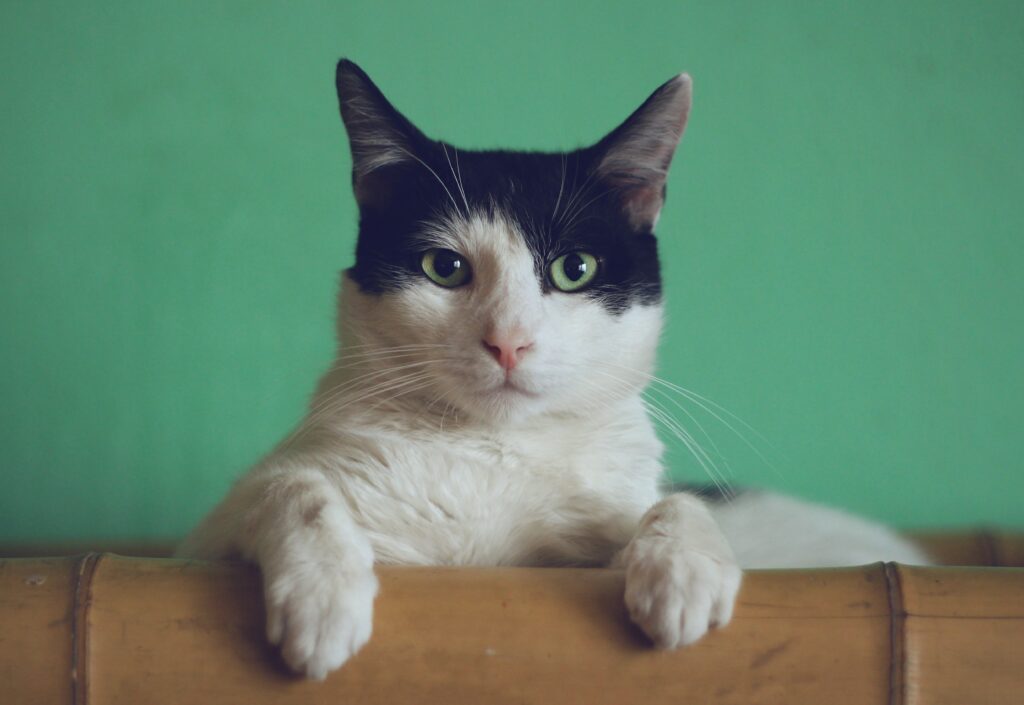
As a cat lover, it’s important to be aware of the common health problems that can affect these adorable feline companions. From hairballs to urinary tract issues, cats can face a range of health concerns that require our attention and care. By understanding these common problems and their symptoms, you can provide the best possible care for your furry friend and ensure their overall wellbeing. So, let’s explore the world of cat health and equip ourselves with the knowledge to keep our cats happy and healthy. Cats are beloved pets that bring joy and companionship to millions of people around the world. However, just like humans, cats can experience health problems. It’s important for cat owners to be aware of these common health issues so they can provide the necessary care and attention to their feline friends. In this article, we will explore some of the most common health problems in cats and discuss their symptoms, causes, and treatment options.

Table of Contents
Dental Health
Maintaining good dental health is crucial for cats. Poor dental hygiene can lead to a variety of oral health problems, including gingivitis, periodontal disease, and tooth resorption.
Gingivitis
Gingivitis is a common dental problem in cats characterized by inflammation of the gums. Symptoms of gingivitis include swollen and red gums, bad breath, and difficulty eating. If left untreated, gingivitis can progress to more serious dental issues. Fortunately, gingivitis can be prevented and managed through regular dental care, such as brushing your cat’s teeth and providing dental treats and toys.
Periodontal Disease
Periodontal disease is a more advanced form of gum disease in cats. It occurs when gingivitis is left untreated and leads to the deterioration of the tissues surrounding the teeth. Symptoms of periodontal disease include severe gum inflammation, tooth loss, and difficulty eating. Treatment for periodontal disease typically involves professional dental cleaning under anesthesia and ongoing dental care at home.
Tooth Resorption
Tooth resorption is a painful condition in which the body breaks down and absorbs a cat’s tooth structure. It can affect any tooth in the mouth and is often accompanied by inflammation and discomfort. The exact cause of tooth resorption is unknown, but factors such as dental trauma, genetics, and autoimmune disorders may contribute to its development. Treatment options for tooth resorption include extraction of the affected tooth and pain management.
Digestive Issues
Cats can experience various digestive issues that can impact their overall health and well-being. Common digestive problems in cats include vomiting, diarrhea, and constipation.
Vomiting
Vomiting is a common symptom of many underlying health issues in cats. It can be caused by factors such as dietary indiscretion, ingesting foreign objects, infections, or gastrointestinal diseases. While occasional vomiting may not be cause for concern, persistent or severe vomiting should be evaluated by a veterinarian to determine the underlying cause and appropriate treatment.
Diarrhea
Diarrhea is characterized by loose, watery stools and can be caused by a variety of factors, including dietary changes, infections, parasites, or underlying health conditions. It’s important to monitor your cat’s bowel movements and consult a veterinarian if the diarrhea persists or is accompanied by other symptoms such as vomiting or lethargy.
Constipation
Constipation occurs when a cat has difficulty passing stools. It can be caused by factors such as dehydration, dietary issues, hairballs, or underlying medical conditions. Signs of constipation may include straining in the litter box, dry and hard stools, and decreased appetite. Treatment for constipation may involve dietary changes, increasing fluid intake, and medication if necessary.
Urinary Tract Problems
Urinary tract problems are common in cats and can range from mild infections to more serious conditions. Some common urinary tract issues in cats include urinary tract infections, urinary crystals or stones, and incontinence.
Urinary Tract Infections
Urinary tract infections occur when bacteria enter the urinary tract and multiply. Symptoms of a urinary tract infection in cats may include frequent urination, straining to urinate, blood in the urine, or urinating outside the litter box. Prompt veterinary care is necessary to diagnose and treat urinary tract infections, as they can be painful and potentially lead to more severe complications.
Urinary Crystals or Stones
Urinary crystals or stones can develop in a cat’s urinary tract and cause discomfort and urinary issues. They are formed from minerals in the urine and can lead to symptoms such as frequent urination, blood in the urine, and straining to urinate. Treatment for urinary crystals or stones may involve dietary changes, increased water intake, and in some cases, surgical removal.
Incontinence
Incontinence is the inability to control urine flow. It can be caused by various factors, including neurological issues, hormonal imbalances, or anatomical abnormalities. Signs of incontinence in cats may include dribbling urine, wet fur around the rear end, or constantly licking the urinary area. Treatment options for incontinence depend on the underlying cause and may include medications, surgical interventions, or behavioral modifications.
Skin Disorders
Cats can be prone to several skin disorders that can cause discomfort and affect their overall well-being. Some common skin issues in cats include flea allergy dermatitis, ringworm, and ear mites.
Flea Allergy Dermatitis
Flea allergy dermatitis is a common skin condition in cats caused by an allergic reaction to flea bites. Even a single flea bite can trigger an intense allergic response, leading to symptoms such as severe itching, redness, hair loss, and skin infections. Treatment for flea allergy dermatitis includes flea control measures, such as topical medications, oral flea preventives, and regular grooming to remove fleas and flea dirt from the cat’s coat.
Ringworm
Ringworm is a highly contagious fungal infection that can affect cats. It leads to circular areas of hair loss, redness, and itching on the skin. Ringworm can be transmitted to humans and other animals, so prompt treatment is necessary. Treatment for ringworm may involve antifungal medications, medicated shampoos, and environmental decontamination.
Ear Mites
Ear mites are tiny parasites that can infest a cat’s ears and cause irritation. Common signs of ear mite infestation include scratching at the ears, shaking the head, dark discharge, and foul odor. Ear mites can multiply rapidly and spread to other pets, so prompt treatment is crucial. Treatment options for ear mites include ear medications prescribed by a veterinarian and routine ear cleaning.

Respiratory Conditions
Respiratory conditions can affect cats and cause symptoms such as coughing, sneezing, and difficulty breathing. Some common respiratory issues in cats include upper respiratory infections, asthma, and bronchitis.
Upper Respiratory Infections
Upper respiratory infections are common viral or bacterial infections that affect the nose, throat, and sometimes the lungs of cats. Symptoms of an upper respiratory infection may include sneezing, nasal discharge, coughing, lethargy, and loss of appetite. Treatment for upper respiratory infections typically involves supportive care, such as keeping the cat’s environment clean and providing proper nutrition and hydration.
Asthma
Asthma is a chronic respiratory condition characterized by inflammation and constriction of the airways. It can cause coughing, wheezing, difficulty breathing, and lethargy in cats. Asthma triggers can vary and may include allergens, stress, or irritants in the environment. Treatment for asthma in cats often involves medications to manage inflammation and bronchodilators to help open the airways.
Bronchitis
Bronchitis is the inflammation of the bronchial tubes, which can cause coughing and difficulty breathing in cats. It can be acute or chronic and may be caused by infections, irritants, or underlying conditions such as asthma or heart disease. Treatment for bronchitis may include medications to reduce inflammation, cough suppressants, and management of any underlying conditions.
Parasites
Parasites are common in cats and can cause various health problems. Some common parasites in cats include fleas, ticks, and worms.
Fleas
Fleas are small, biting insects that infest a cat’s fur and skin. They can cause itching, skin irritation, and allergies. Fleas can also transmit other parasites and diseases, so it’s important to keep your cat protected against them. Treatment and prevention options for fleas include topical or oral flea medications, regular grooming, and maintaining a clean environment.
Ticks
Ticks are external parasites that can attach themselves to a cat’s skin and feed on their blood. They can transmit diseases such as Lyme disease and cause discomfort and skin irritation. Regular tick checks and prevention measures, such as using tick control products approved for cats, can help protect your cat from these parasites.
Worms
Worms are internal parasites that can infect a cat’s digestive system and other organs. Common types of worms in cats include roundworms, tapeworms, hookworms, and whipworms. Symptoms of a worm infestation may include weight loss, vomiting, diarrhea, or a swollen abdomen. Treatment for worms typically involves deworming medications prescribed by a veterinarian.

Eye Issues
Cats can experience various eye issues that can affect their vision and overall eye health. Some common eye problems in cats include conjunctivitis, corneal ulcers, and glaucoma.
Conjunctivitis
Conjunctivitis is the inflammation of the conjunctiva, the thin membrane covering the eye and inner eyelids. It can cause redness, discharge, squinting, and swelling. Conjunctivitis in cats can be caused by infections, allergies, or irritants. Treatment for conjunctivitis may involve topical eye medications, such as antibiotics or anti-inflammatory drugs.
Corneal Ulcers
Corneal ulcers are painful sores that develop on the surface of the cat’s cornea. They can be caused by trauma, infections, or underlying eye conditions. Symptoms of corneal ulcers may include squinting, excessive tearing, redness, and cloudiness of the eye. Treatment for corneal ulcers may involve topical medications, eye drops, and in some cases, surgery.
Glaucoma
Glaucoma is a condition characterized by increased pressure within the eye, which can lead to optic nerve damage and vision loss if left untreated. Symptoms of glaucoma in cats may include redness, cloudiness, dilated pupils, and vision changes. Treatment for glaucoma may involve medications to lower the eye pressure, surgery, or a combination of both.
Reproductive Problems
Reproductive problems can affect both male and female cats and can have serious health implications. Some common reproductive issues in cats include pyometra, mammary tumors, and testicular cancer.
Pyometra
Pyometra is a serious uterine infection that can occur in unspayed female cats. It is characterized by the accumulation of pus within the uterus and can be life-threatening if left untreated. Signs of pyometra may include vaginal discharge, lethargy, loss of appetite, and increased thirst. Emergency veterinary care is necessary for the treatment of pyometra, which usually involves surgery to remove the infected uterus.
Mammary Tumors
Mammary tumors are the most common type of tumor in intact (unspayed) female cats. They can be benign or malignant and often present as lumps or masses in the mammary glands. Early detection and treatment are crucial for mammary tumors, as they can spread to other organs. Treatment options may include surgical removal of the tumors and, in some cases, additional treatments such as chemotherapy or radiation therapy.
Testicular Cancer
Unneutered male cats are at risk of developing testicular cancer. Although it is relatively rare, testicular tumors can occur and may require surgical removal. Regular veterinary check-ups and neutering can help prevent testicular cancer in male cats.

Heart Disease
Heart disease is not uncommon in cats and can have a significant impact on their overall health. Some common feline heart conditions include hypertrophic cardiomyopathy, heartworm disease, and congestive heart failure.
Hypertrophic Cardiomyopathy
Hypertrophic cardiomyopathy (HCM) is a condition in which the walls of the heart become thickened, making it difficult for the heart to pump blood effectively. HCM is a genetic condition that can lead to heart failure if left untreated. Symptoms of HCM in cats may include difficulty breathing, coughing, lethargy, and loss of appetite. Treatment for HCM focuses on managing the symptoms and preventing complications.
Heartworm Disease
Heartworm disease is caused by the transmission of heartworm larvae through mosquito bites. It can affect cats as well as dogs, although cats are considered less susceptible. In cats, heartworm disease can present with a variety of symptoms, including coughing, vomiting, weight loss, and difficulty breathing. Prevention is key for heartworm disease in cats, and there are medications available that can protect against this parasitic infection.
Congestive Heart Failure
Congestive heart failure occurs when the heart is unable to efficiently pump blood, leading to fluid buildup in the lungs or other areas of the body. Common signs of congestive heart failure in cats include difficulty breathing, coughing, lethargy, and fluid retention. Treatment for congestive heart failure may involve medications to improve heart function, diuretics to reduce fluid buildup, and lifestyle modifications to manage the condition.
Allergies
Like humans, cats can also suffer from allergies. Allergies in cats can manifest in different ways and cause discomfort and distress. Some common types of allergies in cats include food allergies, environmental allergies, and contact allergies.
Food Allergies
Food allergies occur when a cat’s immune system reacts to certain ingredients in their diet. Common symptoms of food allergies in cats may include skin irritation, itching, gastrointestinal upset, and diarrhea. Identifying the specific food allergen can be challenging, and a veterinarian may recommend an elimination diet or other diagnostic tests to determine the culprit. Treatment for food allergies involves avoiding the allergenic ingredient and providing a balanced, hypoallergenic diet.
Environmental Allergies
Environmental allergies, also known as atopy or allergic dermatitis, occur when a cat’s immune system overreacts to environmental triggers such as pollen, dust mites, or mold. Symptoms of environmental allergies in cats typically involve skin itching, redness, and hair loss. Treatment options for environmental allergies may include antihistamines, corticosteroids, or immunotherapy (allergy shots) to desensitize the cat’s immune system.
Contact Allergies
Contact allergies occur when a cat’s skin comes into direct contact with a substance that triggers an allergic reaction. Common examples of contact allergens include certain plants, cleaning products, or fabrics. Symptoms of contact allergies in cats may include skin redness, swelling, itchiness, and the development of sores or hives. Treatment involves identifying and avoiding the allergenic substance and providing symptomatic relief through medications or topical treatments.
In conclusion, cats can experience a wide range of health problems that require proper diagnosis and treatment. From dental health issues to digestive problems, urinary tract disorders to skin disorders, respiratory conditions to reproductive problems, heart disease to allergies, it’s important for cat owners to be vigilant and proactive in providing the necessary care for their feline companions. Regular veterinary check-ups, a balanced diet, proper grooming, and a clean and safe environment can greatly contribute to the overall health and well-being of cats. Remember, your furry friend is counting on you for their health and happiness!

